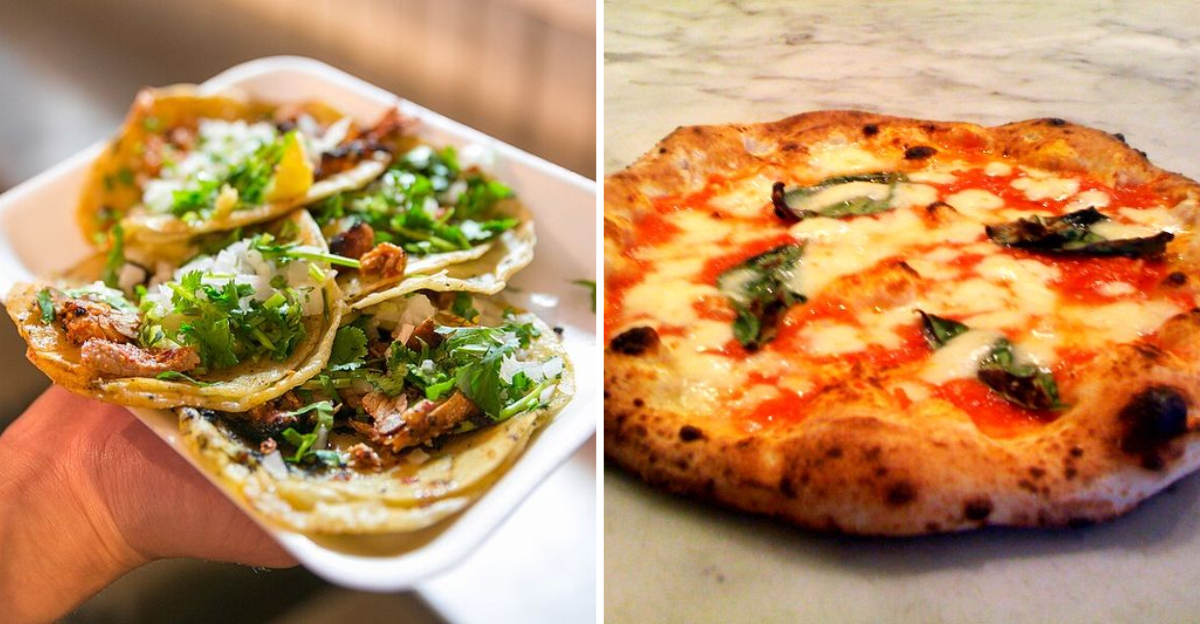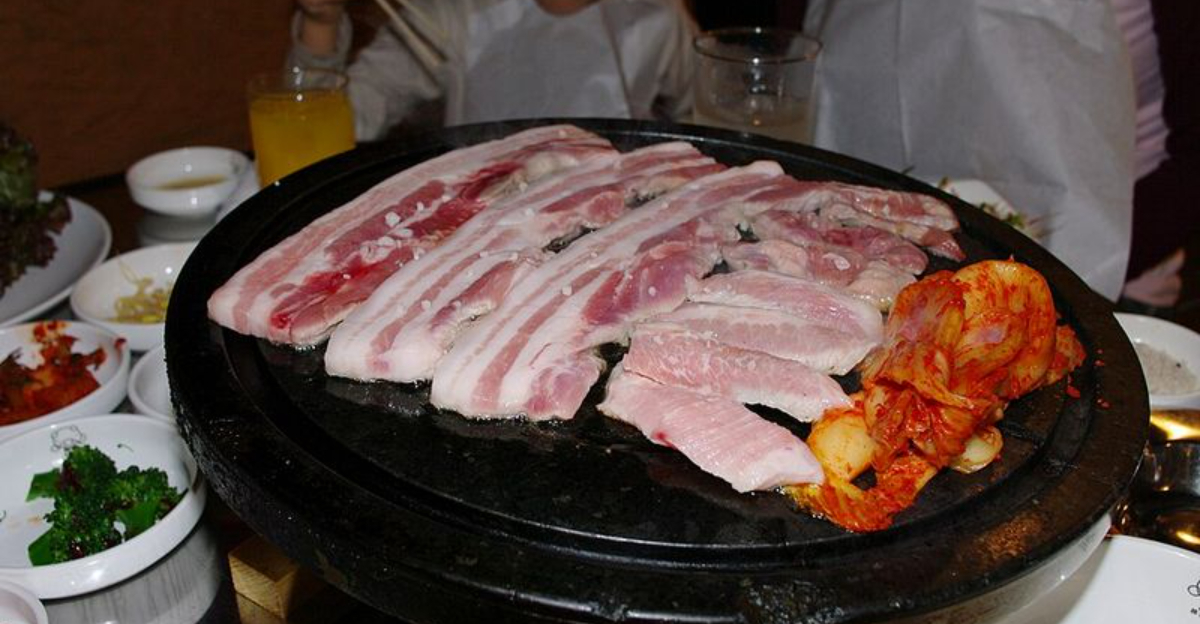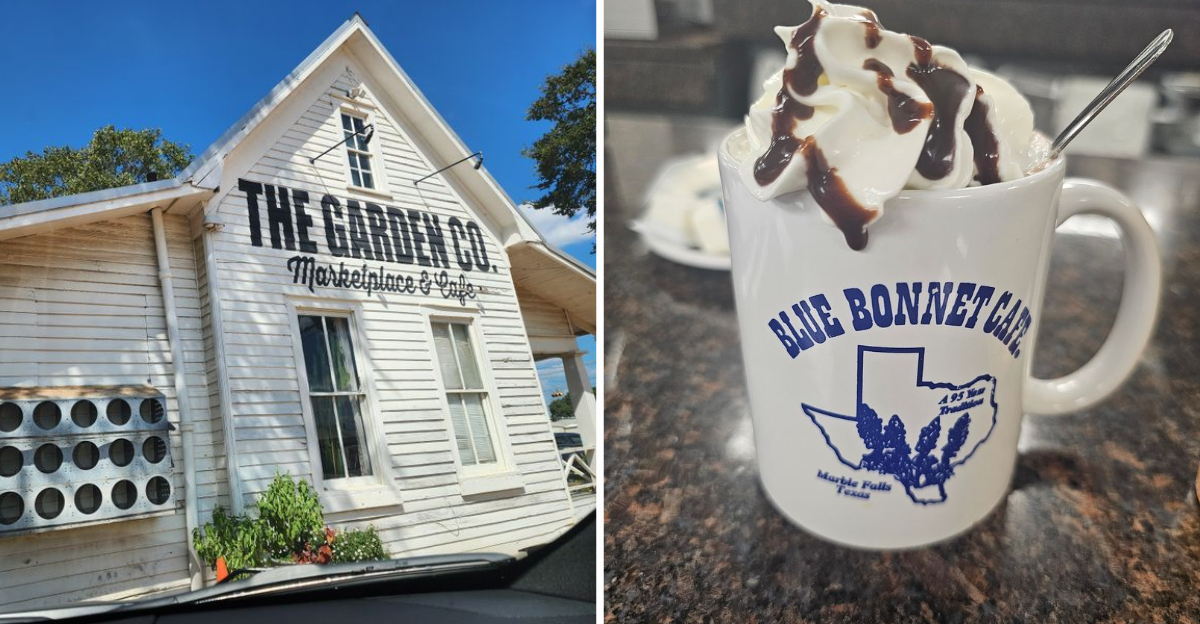The Food Mistakes Tourists Always Make In Italy, According To Locals
Italy lures travelers with the comforting scent of espresso, sizzling garlic, and fresh bread wafting through cobbled alleys.
Even so, first-time visitors can unknowingly break a few unspoken food customs that Italians catch in a heartbeat.
A cappuccino after lunch or cheese on seafood? Instant giveaways you’re not from around here. Learning the rhythm of local dining – like those outlined by travel experts at Never Ending Voyage – helps every meal feel authentic. Eat like the locals, and every bite tastes a little more like belonging.
This article is intended for general informational and travel-culture purposes only. Dining customs and restaurant practices in Italy may vary by region, venue type, and current regulations. While every effort has been made to ensure accuracy, the information should not replace guidance from local sources such as restaurant staff or tourism offices. Traveler discretion is advised.
Ordering Cappuccino After Lunch Or Dinner
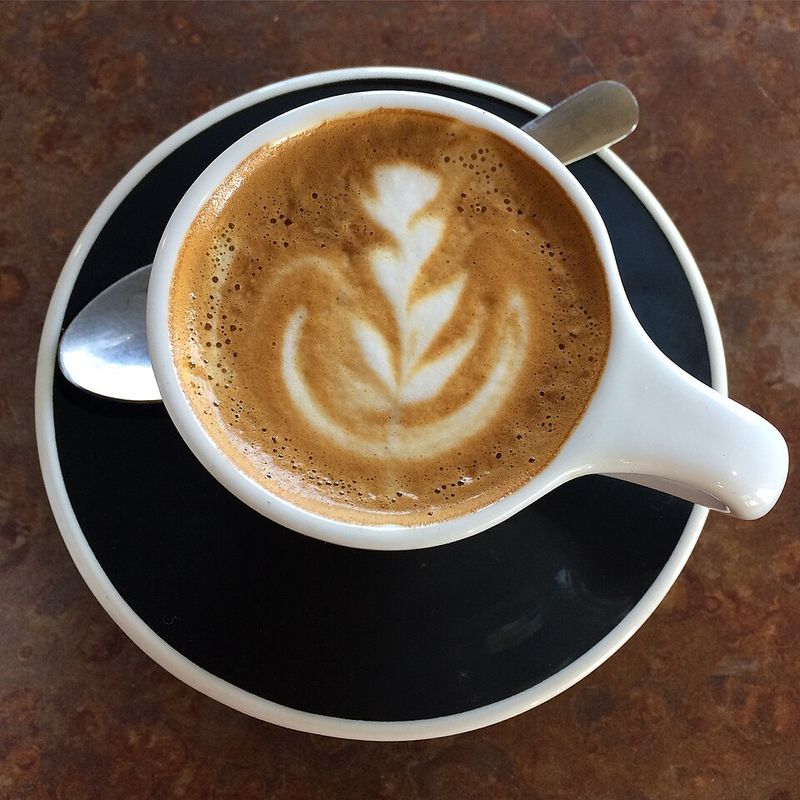
Italians consider milk-based coffee a breakfast thing, period. Your stomach needs that milky cushion in the morning, not after a big plate of pasta.
If you order cappuccino after noon, servers might not say anything, but locals will definitely notice. Espresso is the afternoon and evening go-to, quick and strong.
When in Rome, sip as the Romans do!
Putting Cheese On Seafood Pasta
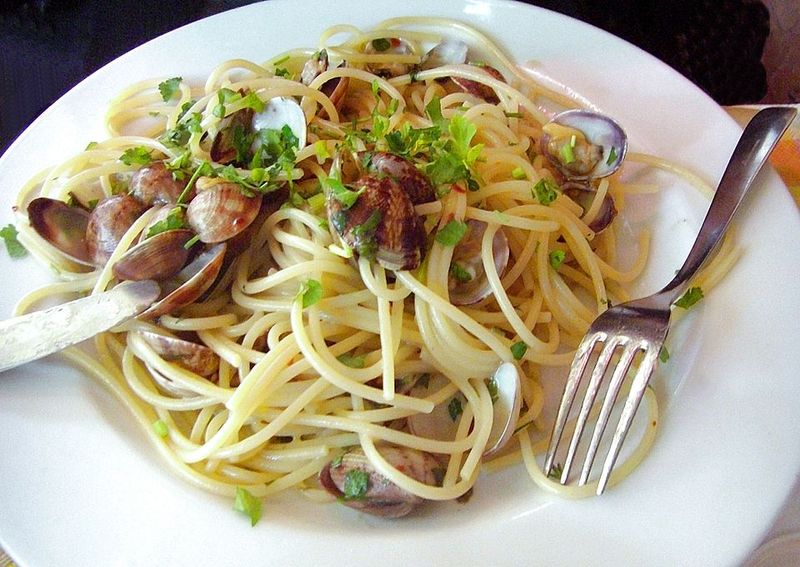
Picture this: you’re served gorgeous linguine alle vongole, glistening with fresh clams. Then you reach for the Parmesan shaker like it’s pizza night at home.
Italians believe cheese overpowers delicate seafood flavors, turning elegance into confusion. The rule is simple: fish and cheese don’t mix on pasta.
Trust the chef’s vision and taste the ocean instead!
Dipping Bread In Olive Oil And Balsamic Like A Starter
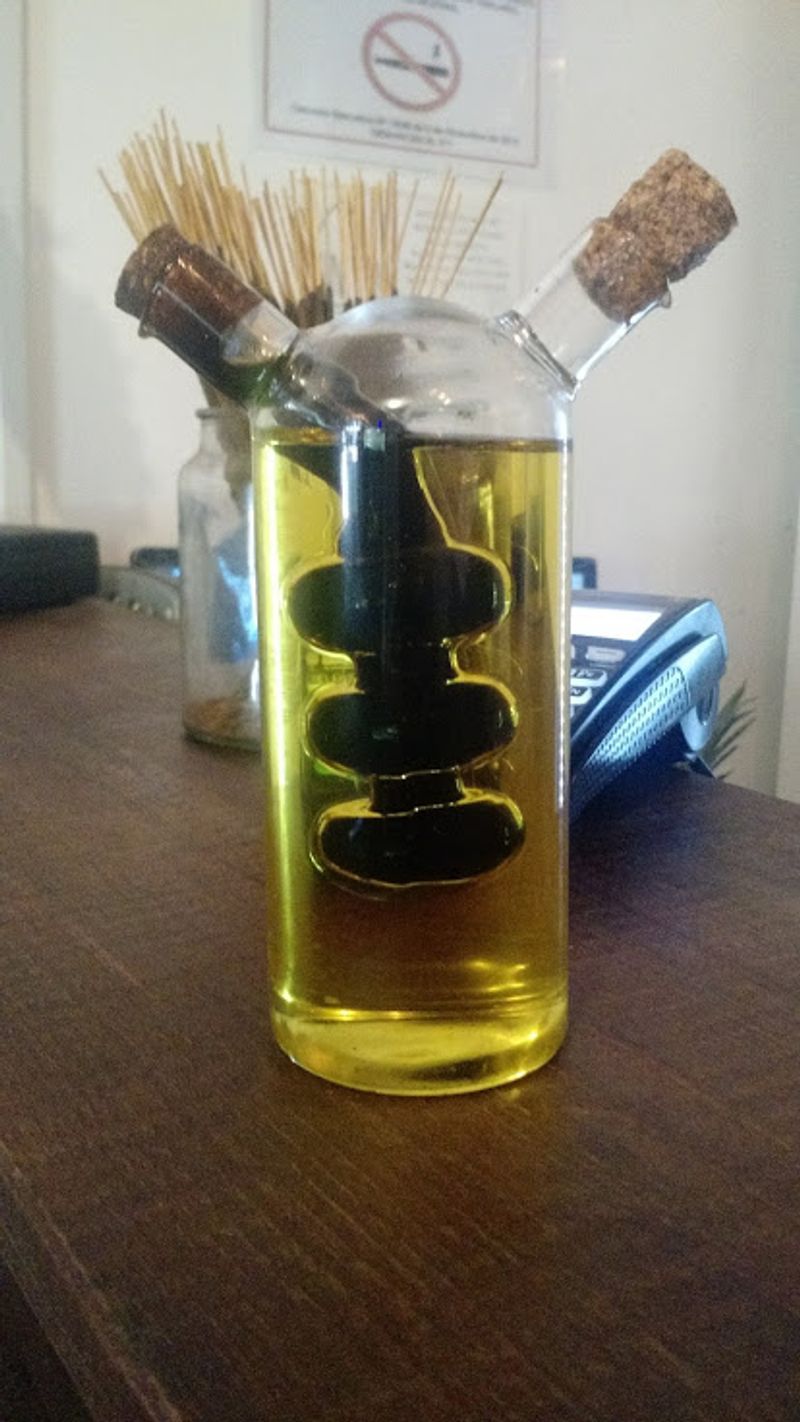
This olive-oil-and-balsamic combo feels fancy, but it’s actually an American invention. Italians use bread to soak up sauce left on their plates, a move called fare la scarpetta.
Bread isn’t an appetizer; it’s a utensil and a finisher. Balsamic vinegar belongs on salads or aged Parmesan, not pooled for dunking.
Skip the dip and save room for real antipasti!
Expecting Free Tap Water At The Table

Walk into any Italian restaurant expecting a pitcher of ice water, and you’ll be disappointed. Bottled water, either sparkling or still, is standard and costs a few euros.
Italians prefer minerale for taste and tradition, not because they’re trying to upsell tourists. Tap water is safe, but asking for it might get you puzzled looks.
Embrace the bubbles and enjoy the ritual!
Skipping Aperitivo And Eating Dinner At 5 P.M.
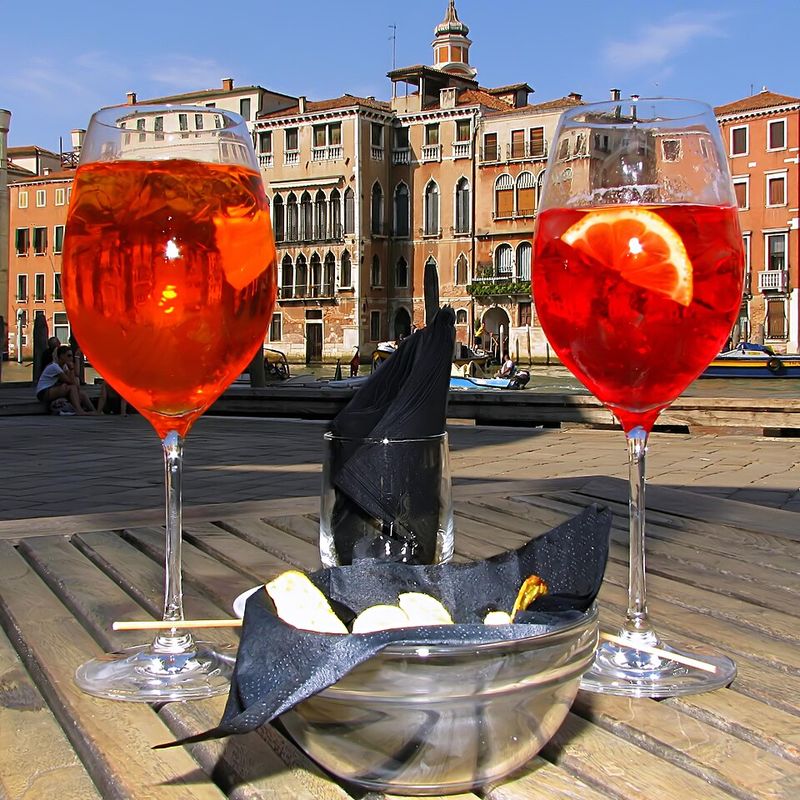
If you’re sitting down for a full dinner at five o’clock, you’re dining solo among confused waitstaff. Italians eat late, usually around eight or nine in the evening.
Before that, there’s aperitivo, a pre-dinner ritual with drinks and snacks that warms up your appetite. Skipping it means missing one of Italy’s best social traditions.
Slow down, sip an Aperol Spritz, and wait for the real dinner hour!
Asking For Lots Of Substitutions Or Build-Your-Own Dishes
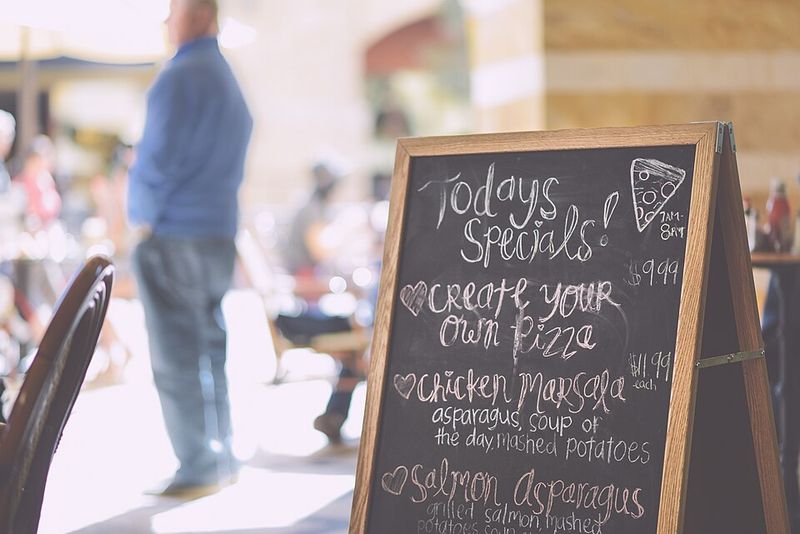
Italian chefs take pride in recipes perfected over generations. Requesting a custom pasta with seventeen changes is like asking Michelangelo to repaint the Sistine Chapel in neon colors.
Dishes are balanced and intentional, not a choose-your-own-adventure game. Allergies are respected, but picky preferences might earn you side-eye.
Trust the menu and taste tradition as intended!
Rushing Through Meals Instead Of Lingering Like Locals
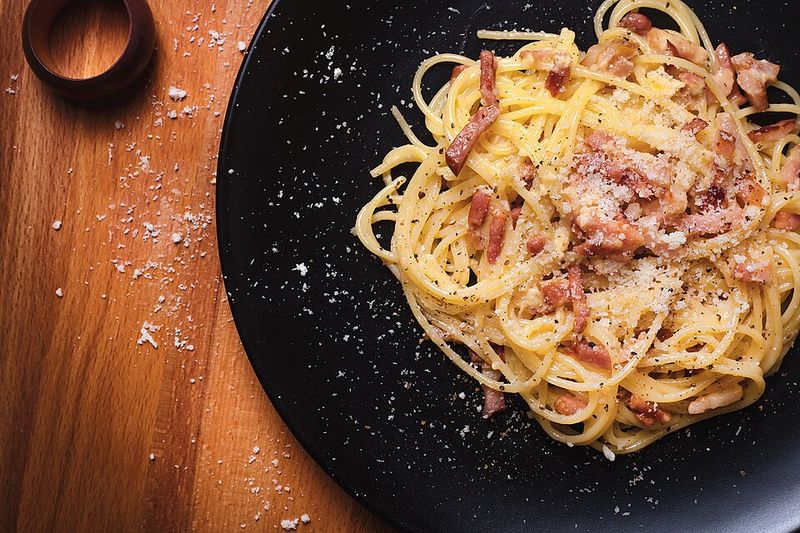
Italians treat meals like mini-vacations, not pit stops between tourist attractions. Eating is social, slow, and sacred, meant for conversation and connection.
Servers won’t rush you with the check because lingering is expected. Scarfing down your carbonara in ten minutes misses the whole point of Italian dining culture.
Relax, laugh, and let the meal become a memory!
Ordering Region-Specific Dishes In The Wrong Region
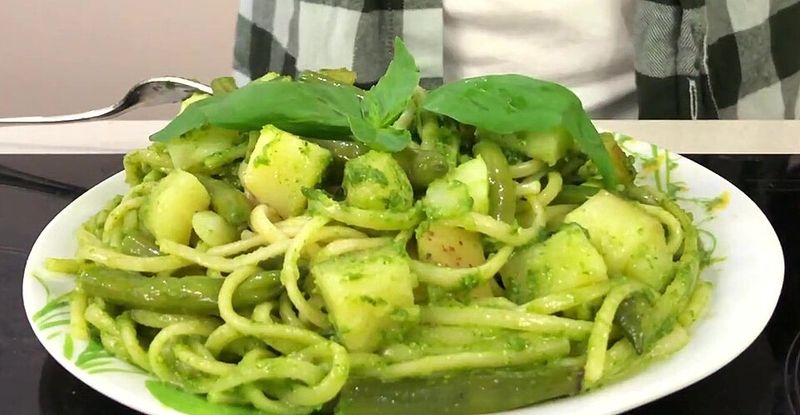
Asking for pesto in Rome is like ordering deep-dish pizza in New York City. Each Italian region has signature dishes tied to local ingredients and history.
Pesto belongs to Liguria, carbonara to Rome, and pizza to Naples. Eating regional specialties where they originated guarantees the freshest, most authentic experience.
Travel the boot and taste each region’s pride on your plate!
Picking Places With Big Photo Menus And Translated Boards On The Street
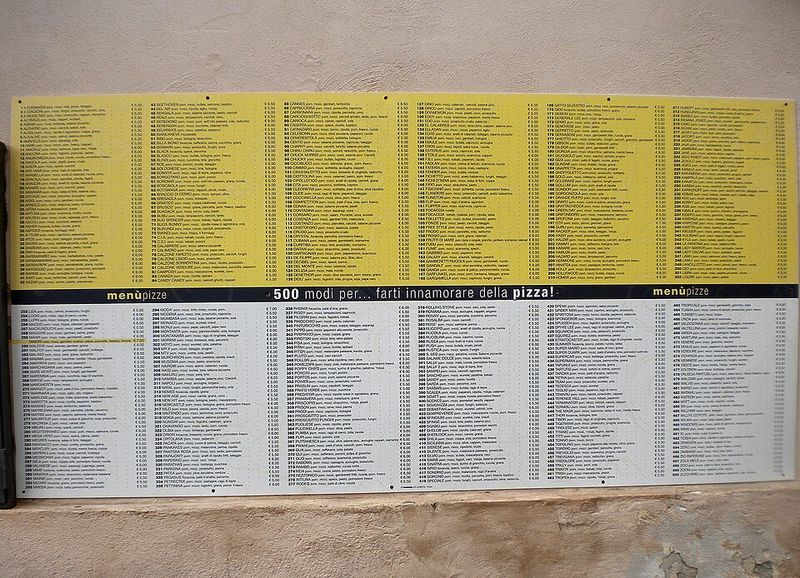
Those giant laminated menus with glossy photos scream tourist trap louder than a fanny pack. Authentic spots usually have simple handwritten menus, often only in Italian.
If the sign outside offers fifty pizza varieties in six languages, locals aren’t eating there. Quality restaurants let their food speak, not flashy marketing.
Follow the quiet doorways and trust your instincts instead!
Choosing Gelato Piled In Neon-Bright Mounds Instead Of Proper Pozzetti
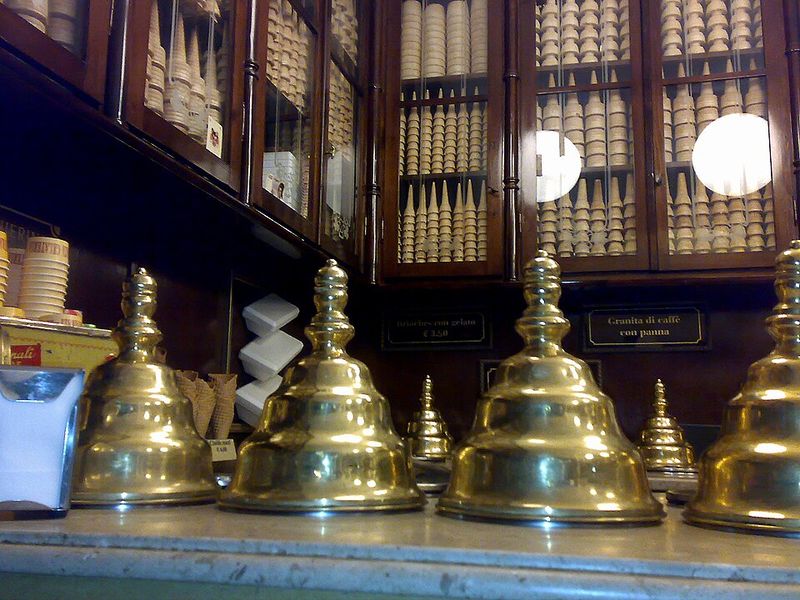
Real gelato hides under metal lids in shallow containers called pozzetti, keeping it fresh and smooth. Bright blue bubblegum mountains piled sky-high signal artificial flavors and air pumped in for volume.
Natural pistachio is brownish-green, not Day-Glo. Authentic gelaterias focus on taste, not Instagram-worthy towers.
Seek the understated shops where locals line up for scoops!
Being Surprised By Pane E Coperto Or Paying For Bottled Water
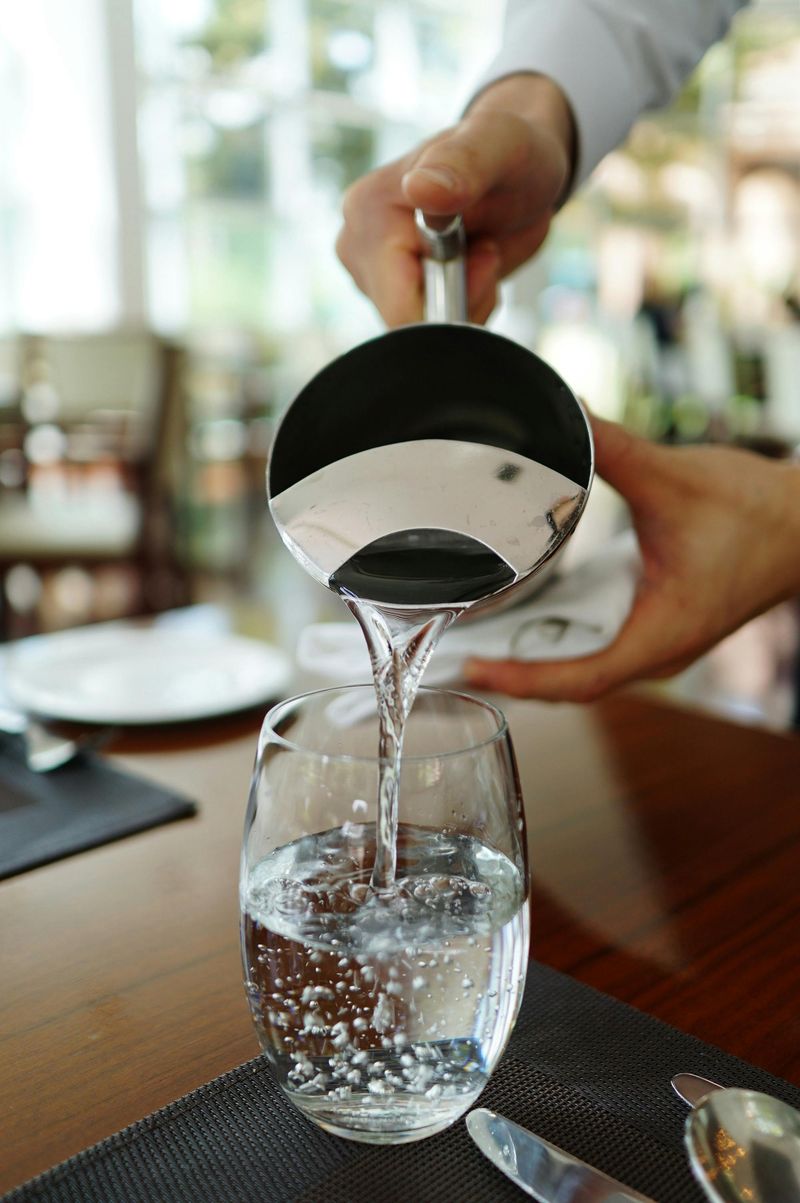
That mysterious charge on your bill, pane e coperto, covers bread and table service. It’s standard practice, not a sneaky tourist tax.
Bottled water also costs money, as we mentioned earlier. Italians view these as normal dining expenses, not optional extras.
Budget accordingly and enjoy the bread basket without sticker shock!
Sitting Down For A Quick Coffee That Locals Drink Al Banco
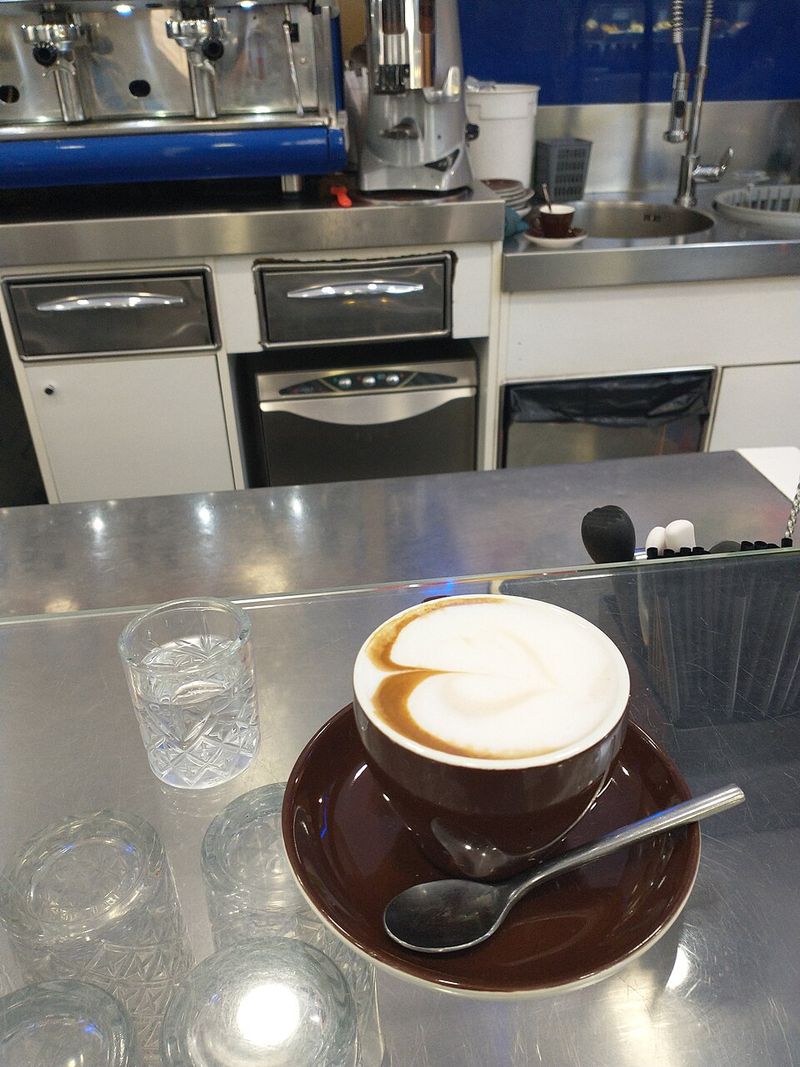
Italians knock back espresso in thirty seconds while standing at the bar, then zip off to conquer the day. Sitting at a table triples the price and marks you as a leisurely tourist.
Coffee culture here is fast and social, not a cozy laptop session. Standing saves money and makes you look like you belong.
Channel your inner local and caffeinate on your feet!
Asking For A Latte And Expecting Coffee
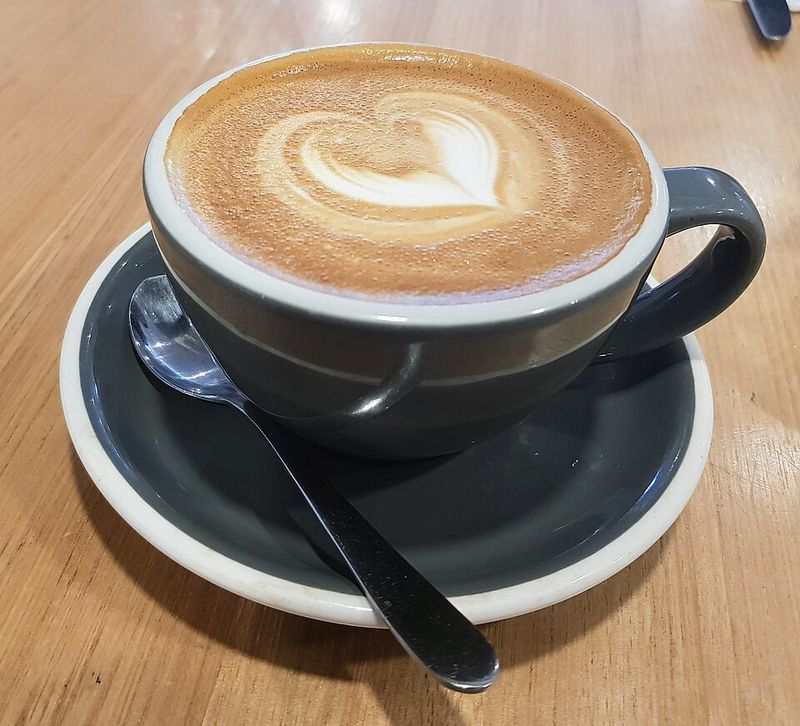
In Italy, ordering a latte literally means asking for a glass of milk. If you want coffee with milk, say caffè latte or just stick with cappuccino for breakfast.
Language mix-ups happen, but this one leaves tourists confused and thirsty. Baristas might chuckle, but they’ll happily correct your order.
Learn the lingo and avoid the dairy-only surprise!
Expecting Fettuccine Alfredo Or Chicken Parm To Be Standard Italian Dishes
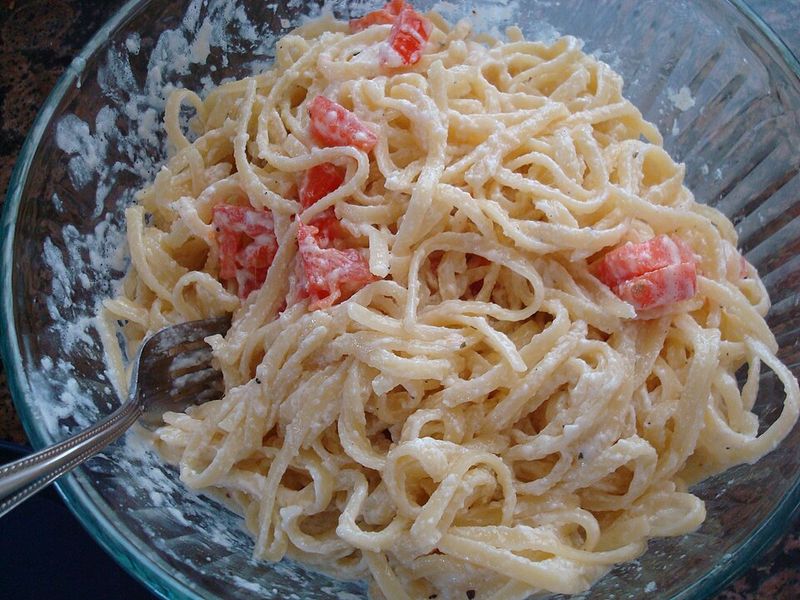
Fettuccine Alfredo was invented for American tourists, and chicken parm is a beloved Italian-American creation, not a Roman classic. Most Italian menus won’t list these crowd-pleasers.
Italians eat simpler, regional pasta dishes with fresh ingredients and light sauces. Heavy cream-drenched plates aren’t the norm in traditional trattorias.
Explore authentic options and discover what Italy really tastes like!

